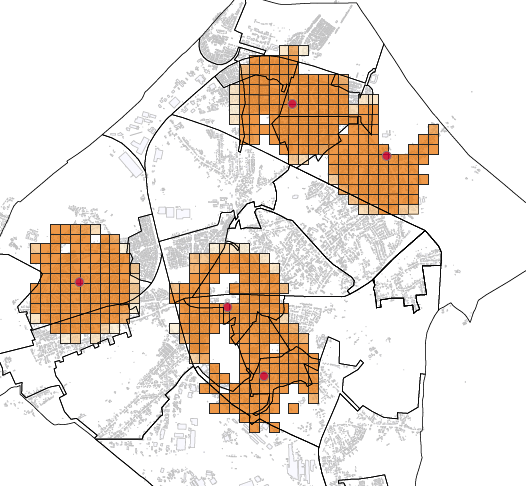Genk’s economic shift: from mining coal to mining data
Can Genk’s economy shift from a centric and top-down industrial model of labour to a network of bottom-up local enterprises? And can strengthening the local economy in Genk’s neighbourhoods achieve greater economic resilience in the town’s future? How can data collection and analysis support this shift?
For the TRADERS Autumn School the working table on data mining will work on the Kolenspoor project in Genk. This project is an initiative for re-using the mining railway tracks as an infrastructure for local mini-(food)markets located in different neighbourhoods in Genk. In this workshop we explore how data collection and analysis can support the Kolenspoor proposal and increase its potentials for successful implementation.
Datasets are prepared for this workshop, and are accessible here. However, participants are also highly encouraged to explore other (online) data sources, or even to speculate about non-existing data that would be useful within this context.
In this workshop we will focus on exploring relations between static and dynamic data. Using data for urban studies is not a new concept, moreover, the use of census data for urban interventions is quite common. Big Data, however, enables us to not just rely on static data, but explore a wider range of digital data sources to paint a more accurate and dynamic picture of the social, spatial, political, economic and ecologic situation. Therefore, in this workshop we will focus on how these new data sources can contribute to an investigation into the Kolenspoor project.
Next to this hands-on approach, we will reflect on the use of data as an empowering tool within the context of labour, and we will problematize the ethical considerations that are involved in the gathering and use of (personal) data in art and design research and practice.




Discussion Genk’s economic shift: from mining coal to mining data